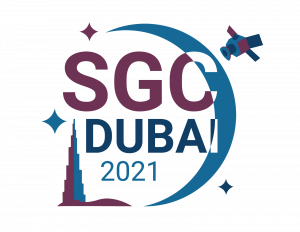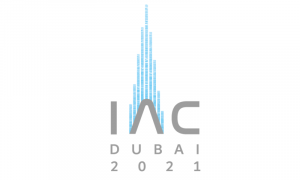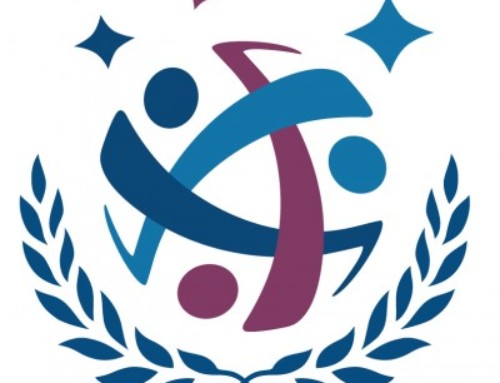SGC 2021 $pace is Business Competition
The Entrepreneurship and Investment Committee (EIC) of the International Astronautical Federation (IAF) in cooperation with the Space Generation Advisory Council (SGAC) is pleased to launch another edition of the $pace is Business Competition this year. This competition is an opportunity for students and young professionals to share their views and analysis on the past, present and future of entrepreneurship and investment within the space sector. The winner of this paper competition will be invited to present their paper at the IAF Business Innovation Symposium. This symposium is designed to offer papers that observe, study, analyse, describe, and/or propose any topic related to space activities that have commercial objectives, as described in the “Competition Description” section below, whether from an academic and/or practitioner perspective.
Application First Round Deadline for Abstract: February 28, 2021, 23:59 GMT March 7, 2021, 23:59 GMT
Application Second Round Deadline for Paper: May 15, 2021, 23:59 GMT


Competition Description
The content of papers may address any of the following topics related to the International Astronautical Congress’ E6 – Business Innovation Symposium:
- Topic 1 (Session E6.1) – Entrepreneurship and Innovation: The Practitioners’ Perspectives: Write a paper focusing on topics such as new business plans, new projects, recent experiences of startup companies, etc. from the perspective of the practitioner.
- Topic 2 (Session E6.2) – Finance and Investment: The Practitioners’ Perspectives:Write a paper focusing on topics related to finance and investment. Sample topics include ways to fund new firms, financial analysis of markets, descriptions of financing and/or banking enterprises, etc.
- Topic 3 (Session E6.3) – Innovation: The Academics’ Perspectives: This topic focuses on innovation from the academic perspective. It should follow the academic chapters of Introduction, Literature Review, Methods, Data, Results, Conclusions, etc. but can show research and analysis at any level on any aspect of business, entrepreneurship, innovation, organization theory, investment, etc.
- Topic 4 (Session E6.5) – Entrepreneurship Around the World: Write a paper on the topic focusing on the challenges and barriers experienced by real entrepreneurs around the around by real entrepreneurs in their different countries and regions around the world.
Award
The main author of the winning paper will receive an award in order to attend the following events and give a presentation at the IAF Business Innovation Symposium (session 6):
- Space Generation Congress (SGC) 2021: October 21 to 23, 2021 in Dubai, United Arab Emirates
- 72nd International Astronautical Congress (IAC) 2021: October 25 to 29, 2021 in Dubai, United Arab Emirates
The award will include provisions for travel, accommodation, and registration for SGC and IAC. The total amount of the scholarship will be determined at a later date and communicated to those selected for round two.
In case the IAC 2021 is held virtually, a gift certificate will be awarded to the competition winner instead.
How to Apply
Please submit your complete application using the Scholarship Submission Form in the “Apply!” section at the bottom of this page.
Please submit your documents as unlocked PDF files. Your name should be included at the top of all pages. Your submission should follow the competition guidelines detailed below.
Your applications will need to include a link to your 400 word abstract written in English.
Guidelines
Eligibility
-
The competition is open to all students and young professionals from any country.
-
All individuals or team members shall be SGAC members between the ages of 18 to 35 inclusive (up to the day of their 36th birthday) on October 30, 2021.
-
The competition is open to individuals or teams. In case of a team submission, a contribution breakdown of the co-authors to the content shall be included. One member shall be identified as the main author and main point of contact, and only one member of the team will be eligible to receive the scholarship.
-
Competition organisers and judges are not eligible for this award.
-
Winners should not receive support from any other source to attend SGC and IAC. Should the winners receive such support midway through the program, SGAC should be informed and solution will be sought.
In the interest of spreading opportunities to more members, SGAC reserves the right to prioritise applicants who have not recently received another SGAC scholarship of a similar nature. “Recently” is defined as having received a travel grant in the past 2 years, in the same category (either international or regional/national) as this posted award. International awards include scholarships for international events such as SGC/IAC, SGFF and Space Symposium, while regional/national awards refer to events, such as the Space Generation Workshops (SGW), national space generation events (SG[country]) or other regional or national conferences. In the event that the IAC 2021 is forced to be held online due to the COVID-19 pandemic, this scholarship will not be counted as an international travel grant, and winners are eligible to apply for another travel grant in the next 2 years.
Submission
-
The abstract/paper is due as an unlocked PDF document under 5 MB. It shall be submitted via the Scholarship Submission Form at the bottom of this page. You will need to be logged in as an SGAC member to submit your application.
-
The language of all submissions shall be English.
-
The submission shall include original content and research. Work that has already been presented at a past conference or previously submitted to this competition is not eligible. Applicants may submit abstracts and papers that are also being submitted for publication and presentation at the IAC this year.
-
The competition is divided into two rounds:
-
First Round – Abstract
For the first round, you will need to submit an abstract conforming to the formatting requirements of the International Astronautical Congress (IAC) 2021, and not exceeding 400 words in length (see here for an example template). A select number of abstracts will be selected for round two. -
Second Round – Paper
For round two, you will be asked to submit a full paper conforming to the formatting requirements for submissions to the IAC 2020 (see here for an example template).
-
-
The best submissions to the First Round will be selected and only those will be eligible for the Second Round.
-
The abstract/paper is due as an unlocked PDF document under 5 MB. All submissions shall be made by
February 28, 2021, 23:59 GMTMarch 7, 2021, 23:59 GMT for the First Round, and May 15, 2021 at 23:59 GMT for the Second Round. Any submissions after the deadlines will not be considered. -
In case of lack of quality of submissions, SGAC has the right to extend and or cancel the competition.
Responsibilities of the Winners
The winning author shall:
- Attend the entire SGC 2021
- Attend the entire IAC 2021
- Support the running of SGC 2021 and the SGAC booth. These tasks offer great opportunities such as being the rapporteur of an SGC working group and helping with writing a group report, being the front face of SGAC at the SGAC booth and meeting interesting people.
- Submit a short report (2 pages excluding pictures) and a short video (1 minute) describing his or her experience at SGC 2021 and IAC 2021 for inclusion on the SGAC website, newsletter or social media and that of our partners
- Present the winning paper at SGC 2021 and/or IAC 2021
- Meet with the competition supporters during IAC 2021. This meeting will be organized by SGAC.
All responsibilities shall be fulfilled and reports etc. submitted not later than December 1, 2021. In case the scholarship awardee(s) do(es) not complete the scholarship requirements on time, the scholarship funds will be transferred to SGAC general budget to continue supporting the mission and work of SGAC.
Reimbursement
- The award will be paid out after the SGC/IAC 2021, no later than 30 days after fulfilment of all responsibilities listed above.
- The scholarship award reimbursement is conditioned on the awardee fulfilling the scholarship requirements not later than December 1, 2021.
- In case applicants or the winning author receive funding for SGC/IAC 2021 by any other organisation, the Scholarships Coordinators shall be informed. If the applicants don’t inform the Scholarships Coordinators, SGAC holds the right to not reimburse the winning author. SGAC aims to reduce the number of double scholarships and will work with the winners to develop a solution in these cases.
- Applicants are advised to not engage any expenses until they have formal confirmation that the competition has been awarded. The SGAC is not liable for any expenses incurred by applicants in any case where a competition is not awarded, or in excess of the value of the awarded grant.
- Reimbursements will follow the SGAC Scholarships Travel Policy & Reimbursement Guidelines. Please make sure to consult the Guidelines before incurring in expenses.
Copyright and Intellectual Property
- By submitting an entry, applicants agree to permit SGAC and all affiliated organisers to mention their names, affiliations and headshot picture in connection with the competition.
- Copyright of the submitted entry shall remain with the contestants. However, by submitting an entry all contestants agree that SGAC and all affiliated organisers are granted non-exclusive reproduction rights regarding all submitted papers. SGAC and all affiliated organisers may also present ideas and findings generated by this competition at relevant conferences.
Liability
- Organisers shall not be responsible in the event that SGC/IAC 2021 is cancelled. SGAC will not reimburse the winning author, even if he/she has already incurred expenses.
- Organisers shall not be responsible in the event that the award winner fails to attend SGC 2021 and/or IAC 2021 or is unable to under extenuating circumstances; in that case the award offer shall become void.
- Organisers shall not be responsible in the event that the award winner cannot obtain any necessary travel documents; if they are required but not obtained, the award offer shall become void.
Evaluation
Evaluators will include members of the SGAC scholarship team and representatives of the scholarship supporter.
The evaluation will be made based on a point system taking following criteria and their weights into consideration:
- Scientific Content and Detail (40%)
- Originality (40%)
- Description of Concept (20%)
Schedule
|
Entries accepted: |
February 3, 2021 |
|
First Round Deadline: |
|
|
First Round Winners Announced: |
|
|
Second Round Deadline: |
May 15, 2021, 23:59 GMT |
|
Second Round Winner announced: |
June 1, 2021 |
|
October 21 – 23, 2021 |
|
|
October 25 – 29, 2021 |
Sponsors
SGAC would like to thank Julio Aprea, Ken Davidian, Joerg Kreisel and A.C Charania for their support in running this competition.
If you or your organisation are interested in providing talented students and young professionals with the opportunity to share their work and ideas with global space community, please contact SGAC Scholarships Coordinators (contact above).
Past Winners
- 2020: Sergio Tabasco, “Market Opportunity or New Space Hype? A Heuristic Approach to Spacecraft Parts Market Sizing for the Sceptical Entrepreneur”. Available Here
- 2019: Mehdi Scoubeau, “Towards a Scalable and Financially Viable Test Platform for Microgravity Research”. Available Here
- 2018: George Profitiliotis, “Planetary Protection Issues of Private Endeavours in Research, Exploration, and Human Access to Space”. Available Here
- 2017: Graham Johnson, “Crowdfunding for Space Missions”. Available Here
- 2016: Carlos Manuel Entrena Utrilla, “Asteroid-COTS: developing the cislunar economy with private-public partnerships”.
- 2015: Paola Belingeri and Maria Isabella Leone, “Licensing as a tool to encourage technology transfer from space”.
- 2014: Jack Yeh and David Revay, “Price per pound: a poor predictor for future growth in the satellite and launch industries. Understanding Moore’s law and future industry drivers”.
- 2013: Lluc Palerm Serra, Jordi Barrera Ars and Jorge Salas Solanilla, “Microsatellites and Microlaunchers: The Tandem That Will Disrupt the Satellite Industry”.
- 2012: Asra Najam, “Game theory analysis for the suborbital reusable launch vehicle research market”.
Contact
For any questions, please communicate with the SGAC Scholarships Coordinators.

![[SGC-IAC] SGC Art Competition 2025](https://spacegeneration.org/wp-content/uploads/2025/04/sgc_sydney_logo-800x480-1-500x383.png)


